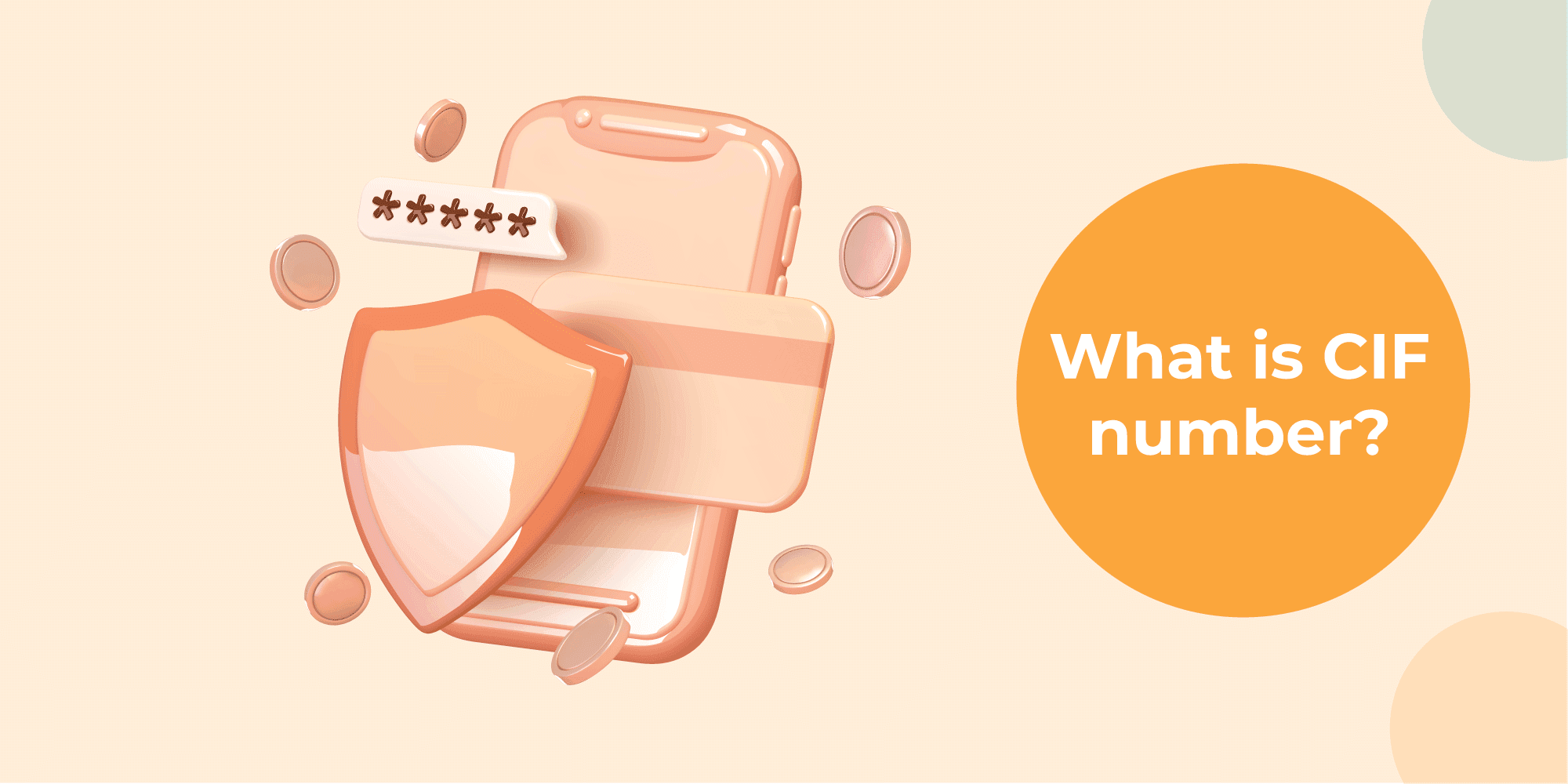What is CIF Number? CIF Full Form, Meaning & How to Locate It
Reviewed by: Fibe Research Team
- Updated on: 8 Dec 2025

When you open a bank account, you receive multiple details like your account number, IFSC code, branch code and more. But there’s one important ID most people overlook—the CIF number. This 11-digit code stores your entire banking profile in one place and helps the bank identify you across all accounts and services.
If you’ve ever wondered what is CIF number, what is CIF code or why banks ask for it during verification, this guide explains everything in a simple and easy-to-understand way.
Table of Contents
What is the Meaning of CIF Number?
A CIF number, also known as the Customer Identification File Number, is an 11-digit unique ID that your bank assigns to you. The CIF full form is Customer Information File, and the CIF full form in bank refers to the digital file where all your details are stored.
Think of it as a digital folder containing your:
- Personal details
- KYC documents
- All bank accounts linked to your name
- Loan details
- Demat account information
- Credit score and transaction history
So instead of checking every individual account, the bank simply enters your CIF ID and immediately sees your full financial relationship.
Bank-Specific Examples:
Here’s how some top banks display the CIF number:
- SBI CIF Number – Printed on the first page of the passbook.
- HDFC Bank Customer ID – Works as the CIF and is found in the ‘Account Summary’ or ‘Profile’ section.
- ICICI Bank CIF Number – Shown under ‘My Profile’ in mobile and internet banking.
- Axis Bank Customer ID – Displayed in account details and used as the CIF number for internal records.
If you’ve ever been confused about is CIF and customer ID same, the answer is:
- Yes, in most banks, CIF number = Customer ID
- In a few banks, both may exist separately but serve similar identification purposes
Customer Identification File (CIF) Contains the Following Details
Your CIF number gives the bank access to:
- All the accounts you hold
- Past transaction history
- Credit score
- Personal details
- Loan account information
- Demat account information
- Existing account balance
- KYC details
- Overall credit relationship with the bank
How to Find CIF Number Offline?
If you don’t want to go online, here are easy offline ways to find your CIF ID:
- Passbook: Banks like SBI and Bank of Baroda print it on the first page.
- Chequebook: Some banks mention it on the first cheque leaf or info slip.
- Welcome Kit: When you open a new account, the CIF number may be included.
- Printed Statements: Your physical bank statements usually carry it.
- Customer Care: Call your bank’s helpline and request your CIF ID after verification.
- Branch Visit: Walk into your branch, show ID proof and get your CIF number easily.
How to Find CIF Number Online?
If you prefer using your phone or laptop, try these online methods:
- Mobile Banking App:
- SBI YONO → ‘Account Details’ section
- HDFC Bank App → ‘Profile’ or ‘Account Summary’
- ICICI Bank App → ‘My Profile’
- Internet Banking: Log in → go to ‘Account Info’ or ‘Profile’ → view CIF number
- Email / SMS Alerts: Many banks mention the CIF ID on monthly e-statements or alerts
These methods work for most major banks like Axis Bank, Kotak Mahindra Bank and others.
Why is a CIF Number Important?
Here’s why a CIF number plays a major role in banking:
- Centralises customer data
- Reduces confusion by organising all accounts under one ID
- Lowers fraud risk through accurate tracking
- Cannot be used for transactions, so it stays secure
- Required for services like net-banking activation, loan processing or account upgrades
- Gives banks a complete financial view of your relationship with them
Even if someone else knows your CIF number, they cannot use it to make transactions. It’s only meant for internal bank usage.
Conclusion
A CIF number is one of the most important identifiers in banking because it keeps your entire financial profile in one place. Whether you hold multiple accounts, apply for a loan or update your KYC, your bank uses this number to verify and manage everything smoothly.
Now that you know what a CIF number is, how to find it and why banks rely on it, make sure you keep this number safe and use it only when required.
FAQs on CIF Number
Is a CIF number the same as an account number?
No. While an account number is provided when you open any bank account, a CIF number is the customer ID. Using this ID, a bank can retrieve all essential details pertaining to a specific customer.
Can I give my CIF number to anyone?
It is better not to share the customer identification number with anyone. However, the number is used for internal purposes by bank employees and is of no use to anyone else. Getting these details won’t allow anyone to execute fraudulent transactions or misuse your banking details.
How do I find my CIF number?
It’s easy to find your CIF number. You can check your passbook, bank statement or even your bank’s mobile app. If you’re still unsure, you can call customer care or even visit your nearest branch.
